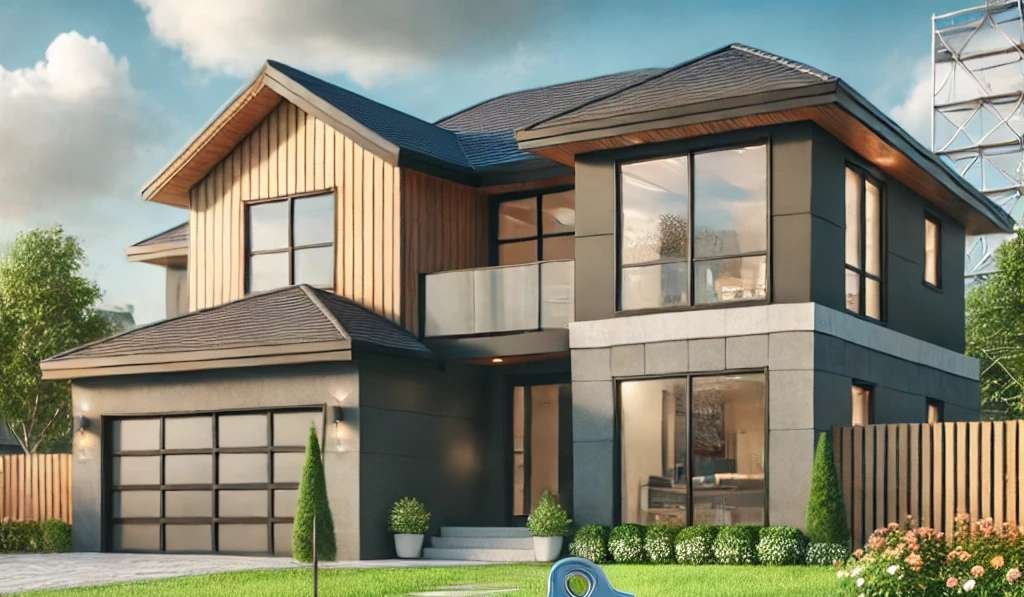Many people dream of building a new house, but it also involves a lot of financial preparation and dedication, especially when it comes to the down payment. In contrast to regular house purchases, down payments for new construction sometimes call for staged payments that are in line with the project’s progress. Effective budgeting and a seamless home construction process may depend on knowing when the down payment is due.
In order to help you understand why each installment is important, when it’s usually needed. And how it helps make your dream house a reality. This article walks you through each step of the down payment process for a new construction home. Let’s go over all the information you need about down payments for new building projects.
Why is a down payment for a new construction home important, and what is it?
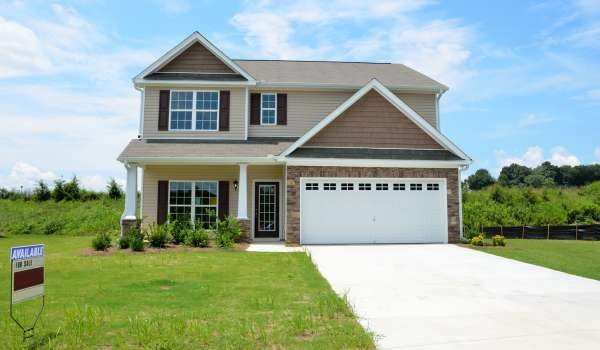
A partial advance payment that establishes your financial investment in the new house. And validates the builder’s commitment to the project is known as a construction home payment due. In addition to showing good confidence in the building process, this payment is essential to starting the project. By paying for upfront expenses like supplies, permits, and early labor.
The money enables the builder to go on with necessary activities like purchasing supplies and preparing the site. This upfront payment guarantees the buyer and builder’s dedication to the project. Establishing a cooperative partnership aimed at effectively realizing your ideal house.
Recognizing the Distinctions Between Pre-Owned and New Construction Homes
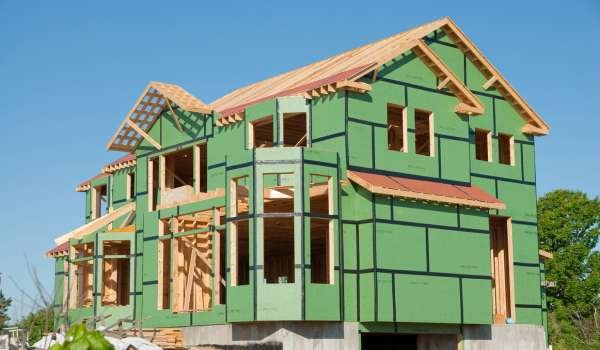
New construction houses use a phased method, in contrast to pre-owned homes, which need a single down payment at closing. In accordance with project milestones, payments are sometimes made in installments. The builder’s cash flow is supported by this staggered payment plan, which guarantees that money is accessible at every crucial stage of the building process. Both sides are also given protection with this method. The buyer can keep an eye on every step while the builder gets paid when the job is completed.
Additionally, unlike pre-owned houses when the whole sum is payable at once. This plan gives the buyer more time to save money for each payment. For first-time homebuilders, it is essential to comprehend these distinctions.
Why Down Payment Schedules Vary for New Construction Homes

Payment plans vary from those for conventional purchases since new construction need a schedule that coincides with the building stages. New construction houses demand payments throughout the course of the project rather than a fixed sum at closing. This minimizes the possibility of delays brought on by a shortage of cash flow by guaranteeing. That money is accessible when required for personnel and supplies at every step.
From groundbreaking to final inspection, each payment ensures the project remains financially feasible by signifying a particular commitment to a phase. This approach, which is exclusive to new construction. Reduces financial risk for builders while enabling purchasers to progressively raise their investment as the project gets closer to completion.
When Is the New Construction Home Down Payment Due? Dissecting Every Phase
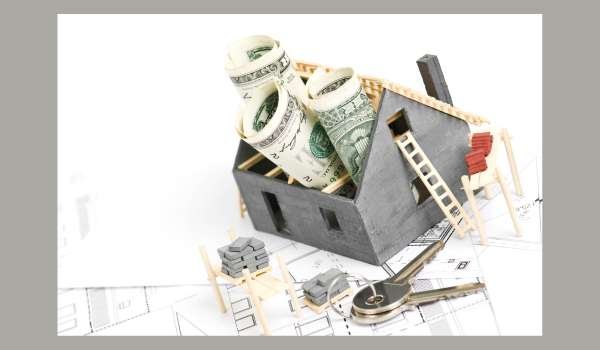
For a new build house, the down payment is often not a one-time cost. Beginning with an initial payment at contract signing, payments are made in installments. That correspond with significant construction milestones, and a closing payment is made at the conclusion of the project.
This staged strategy relieves the buyer’s financial load by allowing them to schedule for payments over time. While also assisting the builder in maintaining consistent development. For efficient financial planning and to make sure you’re ready for every stage of the building process. It is essential that you comprehend each of these phases. From obtaining the first supplies to completing the finishing, each stage has a distinct function.
What is the expected down payment amount for a home under construction?
A new construction home’s down payment typically ranges between 10% and 20% of the overall cost. However, it may vary according to the builder, kind of property, and financing terms. Because custom constructions are distinctive and sometimes more expensive, they may demand larger down payments. Set requirements, which are usually smaller and more predictable, may apply to production builds.
Which are usually provided by bigger organizations. Clarifying these expectations with your builder and lender at the outset is crucial since the total down payment may have an impact on the financing timing and strategy. Being well-prepared guarantees that you are prepared for every payment phase.
New construction project phases and their effects on when to make a down payment

- Pre-Construction Phase: At contract signing, a down payment is often required before construction starts. The builder is able to pay for initial costs with this payment.
- Mid-Construction Payments: As the house takes form, builders could ask for more money to cover continuing labor and supplies.
- Final Payment at Completion: To ensure final finishes and confirm ownership transfer. The final payment is usually expected after the project is finished.
- The payment for each stage keeps the project moving forward by guaranteeing. That labor and material availability coincide with the building timeline.
What You Should Know About the First Down Payment at Contract Signing

The first down payment is usually needed at the time of signing the building contract. When it comes to a construction home payment due. This upfront contribution, which is typically between 5% and 10% of the overall cost. It gives the builder the money they need to begin designing, locating supplies, and setting up the building schedule. By making this up-front payment, you show the builder that you are serious about the project. Which enables them to safely assign resources and reserve your place in the building schedule.
By laying the groundwork for future payments, this upfront financial commitment guarantees. That you and the builder are totally committed to seeing your new house through to completion.
Builder-Established Deadlines for Installments of the Down Payment
Builders sometimes establish deadlines for payments for certain project stages, such as the completion of the foundation, framing, and roofing. These payments provide consistent cash flow throughout the project by covering the expenses related to each stage. Clarifying milestones up front is crucial since they differ depending on the builder and the kind of project. Because customers can see concrete proof of work before the money is released. Aligning payments with progress also provides them peace of mind. Both sides win from this arrangement, as purchasers are reassured by the project’s consistent progress toward completion and builders are able to continue financing necessary supplies and labor.
Reasons for Requiring Staggered Down Payments from Certain Builders
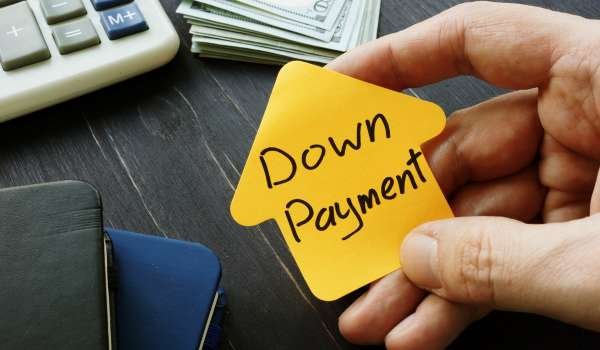
By paying for expenses as they come up rather than depending on a large amount at the end, staggered down payments assist builders in keeping a steady budget for the project.
Additionally, by guaranteeing that money is solely used for finished task phases, this payment arrangement safeguards purchasers. A more efficient cash flow benefits builders by preventing project delays and guaranteeing the availability of high-quality personnel and resources. For purchasers, staggered payments entail a progressive outlay of funds in line with the building of the house. By holding both sides responsible, this approach establishes a stable and open financial agreement that eventually supports the project’s schedule.
What It Means and What to Expect When a Down Payment Is Due at Closing
When construction is finished and ownership passes to the buyer, the last down payment is often expected at the closing. This payment completes the builder’s obligations and secures the buyer’s ownership of the property by paying off any remaining debt. It often comes with extra closing charges that cover the last payments for legal paperwork and title transfer.
This signifies the conclusion of the down payment process and the start of house ownership for purchasers. To guarantee a seamless transition and avoid unforeseen financial difficulties during the last stage of the home-buying process, it is important to prepare for this last payment.
Disparities in Down Payment Requirements Between Production Builds and Custom Builds

When considering a construction home payment due, It’s crucial to remember that bespoke projects sometimes come with greater upfront and recurring costs because of their distinctive designs and specific materials. Every stage of a bespoke project requires unique features and skill, which calls for a significant upfront financial investment. Production builds, on the other hand, provide a predictable financial timetable due to their more uniform payment schedule.
By being aware of these differences, purchasers may establish reasonable financial expectations and match their budget to the kind of house they are constructing. Custom houses are more expensive at every point of the payment process, even while they allow for a great deal of customization.
What Takes Place If Your Down Payment Schedule Is Affected by Construction Delays?
Since each installment is often linked to a certain stage of completion, construction delays may affect payment schedules. Payment deadlines may need to be adjusted if delays arise because of bad weather, a lack of materials, or other circumstances. Numerous contracts have clauses that allow for flexibility in the timing of payments in certain circumstances.
To be sure they won’t be penalized or incur additional expenses in the event that the project timeframe changes, buyers should carefully read these provisions. Maintaining open lines of communication with the builder may help control expectations and make sure that everyone is aware of any possible changes to the timeline and the associated costs.
Advice on How to Pay for Your Down Payment on a New Home Construction
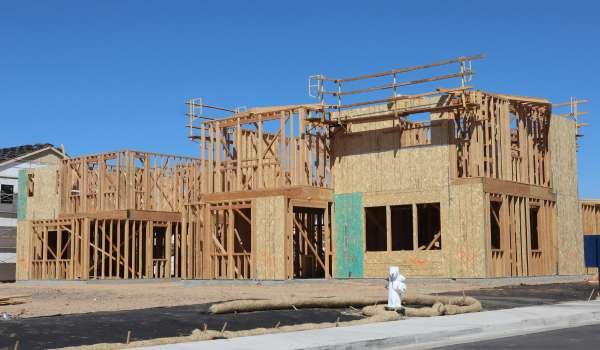
- Mortgage Options: Although certain purchasers could benefit from specialist financing, traditional mortgages might be an option for new development.
- Construction Loans: These loans support various project stages and correspond with new construction’s payment schedule.
- Programs for Builder Financing: Some builders provide financing, which streamlines the payment procedure and may allow for flexibility with regard to deadlines.
- Early investigation of these financing possibilities helps purchasers in making well-informed choices that complement the builder’s specifications and their own financial situation.
Knowing the Differences Between Earnest Money and the Down Payment
The down payment is a bigger financial commitment that starts the building process, while earnest money is a smaller contribution used to show a buyer’s genuine intent. Unlike the down payment, which is intended to start and finance the construction, earnest money is often refundable if the project doesn’t go forward. Given that every payment has a particular function, this differentiation is crucial.
A smoother transaction from the first commitment to project completion is ensured when purchasers are aware of what each payment covers and when it is due.
Can You Get Your Down Payment Back? Important Pointers and Clauses to Look for
Although certain contracts may include return provisions in the event that the project cannot be completed, down payments for new construction are often non-refundable. To comprehend the possible circumstances in which a refund can be applicable, buyers should carefully read these conditions. Refund eligibility may also be impacted by provisions pertaining to cancellations, delays, and major modifications. Buyers may feel more at ease knowing these details since they will provide clarity and safeguard their investment in the event of unanticipated events by understanding the circumstances under which a refund may be feasible.
Budgeting Advice for Handling a New Construction Home’s Down Payment Deadlines

It is essential to create a budget that accounts for every payment step. In order to ensure that funds are accessible as deadlines draw near, buyers might think about opening a separate savings account to handle down payment payments. Financial stress may be avoided by factoring in a contingency for unforeseen expenses, particularly in the event of project modifications or delays.
Buyers may make sure they easily reach each financial milestone by budgeting and monitoring their spending, which will prevent needless delays in the project caused by financing problems.
How Adaptable Are Schedules for Down Payments? Dealing with Your Builder
Particularly for purchasers with solid financial standing, some builders provide flexible payment options for the construction home payment due. It is essential to communicate openly; by talking about possible difficulties or schedule issues early on, changes may be addressed.
Special situations, such as unforeseen personal costs, may be accommodated by builders to guarantee the project proceeds without causing the customer more stress. Keeping this conversation going promotes a positive working relationship and helps guarantee the project remains on schedule, even if changes to the payment schedule are required.
When Is a New Construction Home’s Last Payment Due?

When the house is finished and prepared for transfer, the last down payment is usually expected at closing. This payment completes the project’s financial responsibilities and validates ownership. Buyers should anticipate paying any unpaid fees at this point in order to secure the property in their name. Closing charges and final title transfer fees are often included in this last phase.
As the new construction adventure comes to an end, preparing for this payment guarantees a seamless transfer from the building period to ownership.
Hidden Fees: Budgeting for Extra Expenses After the Down Payment
Construction is covered by the down payment, however, there may be other expenses like utility hookup, landscaping, and closing charges. Additional costs for licenses, improved finishing, or inspections are also incurred by certain purchasers. Buyers may make more realistic budgets and avoid last-minute shocks by being aware of these hidden charges.
During the crucial latter phases of construction and property transfer, budgetary pressure is avoided and the process is kept stress-free by budgeting for these costs.
How to Proceed If You Cannot Make a Down Payment by the Due Date
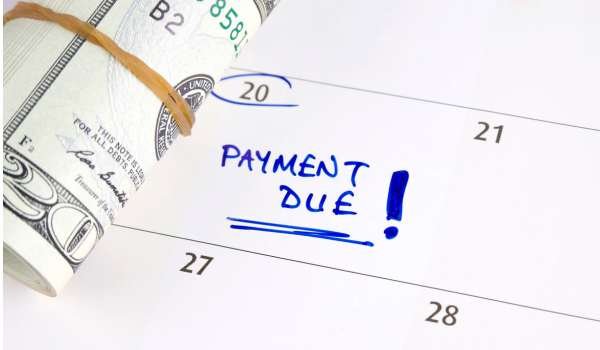
Talk to your builder right away if you have trouble making a payment before the due date. They may be able to provide alternatives like a short extension or a payment plan, which would enable the project to go on right now. Proactively addressing the problem helps avoid issues or project delays. Builders often recognize that unexpected events occur and that keeping lines of communication open may aid in identifying win-win solutions that protect the project schedule and your peace of mind.
Making a Budget to Fulfill New Construction Down Payment Requirements
It is crucial to create a financial plan that corresponds with every payment phase. In order to prevent stress, buyers should deliberately save money, putting it toward each milestone. A financial adviser may provide guidance on how to keep on course while taking both anticipated and unforeseen costs into consideration. By ensuring that purchasers are prepared for every payment, this preparedness promotes a more satisfying and manageable new building journey that fits with their long-term objectives and financial situation.
Establishing Reasonable Goals for the Timing of the Down Payment in a New Construction Project

Since unforeseen circumstances might change the project timeframe and, therefore, the payment due dates, flexibility is essential in new construction. Buyers should have a financial buffer and be ready for any adjustments. Setting reasonable expectations makes the journey to homeownership easier by lowering stress and enabling a flexible approach to finance.
Learn More : How To Reduce Cost Of House Construction
Conclusion
A clear understanding of each construction home payment due can lead to a smooth and rewarding new home build experience. By staying financially prepared and aware of every payment milestone, you ensure the project progresses seamlessly. This approach helps lay a strong foundation for your home, combining solid financial planning with steady construction, ultimately leading to a successful and well-built home.
